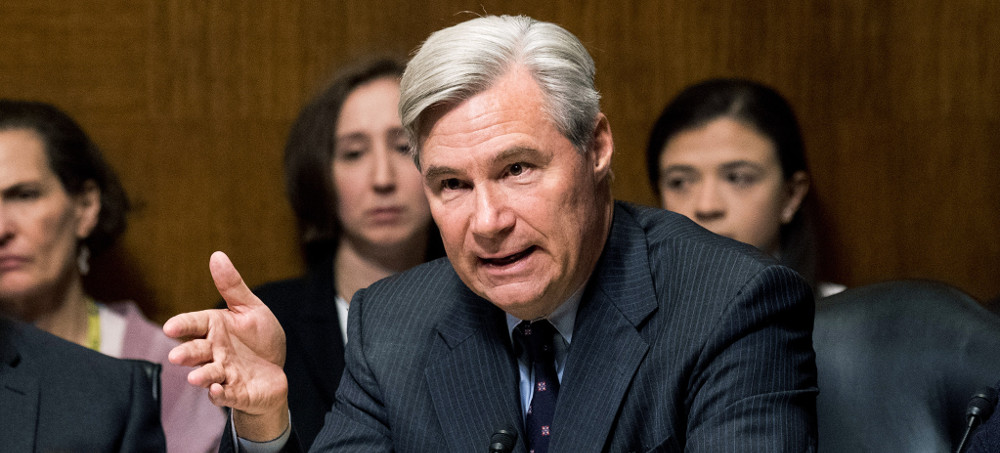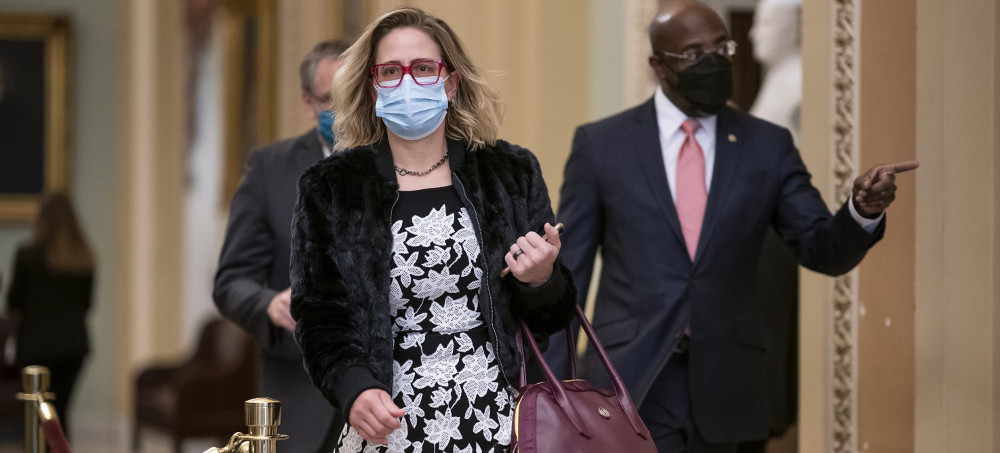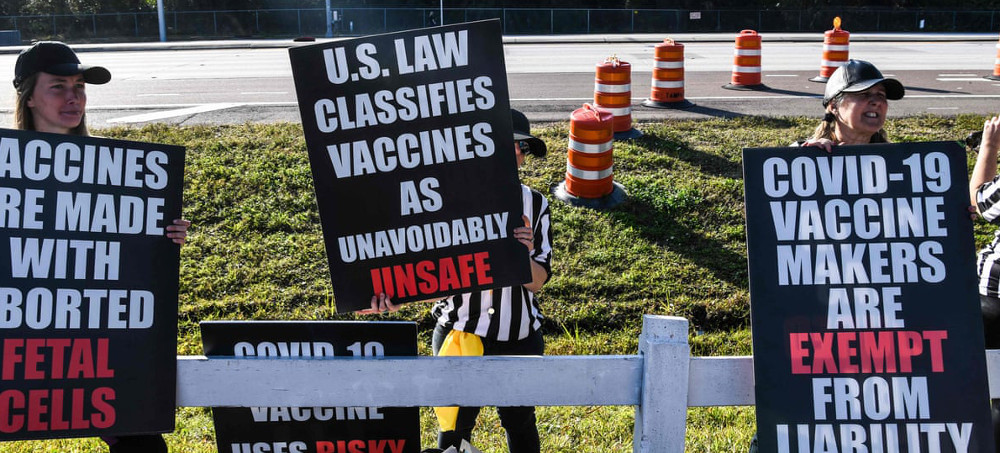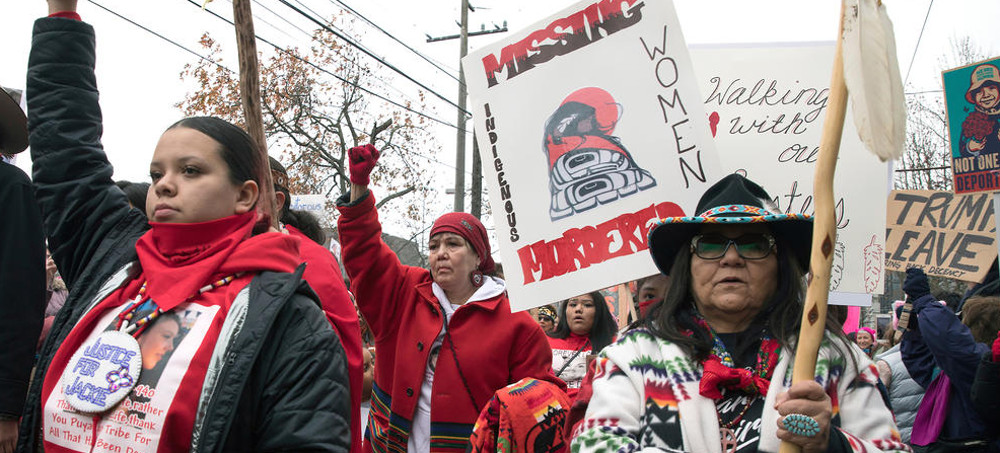Live on the homepage now!
Reader Supported News
I think about the additions and subtractions of years a lot when I seek a lens to bring focus to the present. How do we measure our progress, our history, and our failings?
We are a nation of flux, of waves, of ever-shifting currents. Let’s start with our population. Most citizens of the United States today can trace their ancestors’ arrivals back only a few generations, if that. There can be great discrepancies between when ancestors arrived from different sides of the family. We mix in this country in ways that churn our own identities. Even so, it is a cruel irony that many of those with the longest claims to the land, the Native Peoples, and those who arrived shackled, pillaged, and raped from their homelands, have suffered the greatest injustices of this nation. Permanence doesn’t equal justice.
Our laws and customs are also ones of great upheavals. We like to think of the norms of our democracy as edifices. Far from it. We say these were the way things were, not quite adequately remembering what times past were truly like. I have witnessed far more change than I can fully comprehend, let alone relate to you with any semblance of coherence. It is ever-present, and ever-shifting. And it is accelerating.
Very little about what life was like when I was growing up remains intact. It is easy to focus on technology. I do video calls on my telephone with distant friends, even as I remember party lines when I was a child. (For those unfamiliar with the term, look it up. It wasn’t a party.) But the social changes are even more profound.
I have witnessed broad recognition of systemic biases, injustices, and cruelties. But a lot of the necessary progress we need to make on race, LGBTQ rights, the environment, as well as many other issues, remains maddeningly elusive. For many in this country this lack of progress harms and even kills. We take steps forward and backward.
The Greek philosopher Plato quoted one of his predecessors Heraclitus: “all things pass and nothing stays,” and “you could not step twice into the same river.”
As an avid fisherman, I know the truth of those words. It is one of the joys of the pastime. Even as I have returned to a favorite bend in a favorite river, even though I know the way by heart, even if I had just been there the day before, each moment is different. The sky. The smells. The sounds. The light. The breeze. And of course the will of the fish.
We have just lived through an administration that sloganeered about going backwards to when America was “great.” Time travel is of course impossible. But the era they seek to return to was not one of unadulterated greatness. It was one of systemic injustices and white supremacy.
We still live with the echoes of that era, of our past. The currents that haven’t changed in our country undermine our democracy. But we must all approach the present with humility.
Things can change. They will change. It can be for the better. And for the worse. But what I have also learned is that change need not be a passive exercise. From climate change to changing and expanding the rights and democratic values of our nation, we can all play a role. Rather than frighten us, change can be a powerful inspiration for hope.
There is so much about our nation in need of change that it can be overwhelming. But another lesson I have learned is that even small acts of change can add up. One of our hopes for the Steady newsletter is that it can bring together a community that rallyies around a constructive spirit of change. So perhaps we can all pledge today to endeavor this week to do something that we believe will change our neighborhood, our community, our city or town, and thus our nation and our larger world, for the better. Change need not be destructive. It can be just what we need to put us on a more peaceful, inclusive, and productive path into the future.
 Political strategist Steve Bannon could face criminal charges for defying a congressional subpoena. (photo: Steve Helber/AP)
Political strategist Steve Bannon could face criminal charges for defying a congressional subpoena. (photo: Steve Helber/AP)
Three other former Trump administration officials will have their depositions postponed, according to a committee aide.
"The Select Committee will use every tool at its disposal to get the information it seeks, and witnesses who try to stonewall the Select Committee will not succeed. All witnesses are required to provide the information they possess so the Committee can get to the facts," the panel's chair, Rep. Bennie Thompson, D-Miss., said in a statement.
He indicated the committee would vote on a contempt report for Bannon on Tuesday evening, following through on its weekslong threat of criminal referrals to the Justice Department for those who don't comply, which could lead to potential fines and jail time.
Thompson added that the panel is grateful to the "many individuals" who have voluntarily participated in the probe, including several who have met recent subpoena deadlines to produce documents.
Bannon and former Defense Department official Kashyap Patel were requested to sit for depositions on Thursday. Their testimony was to be followed on Friday by those from former White House Chief of Staff Mark Meadows and Dan Scavino, a former Trump White House deputy chief of staff for communications.
The committee had previously said Meadows and Patel were in talks with the panel, and as a result of those ongoing talks, their depositions will be delayed for a "short" period, an aide said. Scavino, who was not served his subpoena until last week, will also have his deposition postponed.
Bannon was not expected to cooperate with the panel, citing executive privilege. In an Oct. 13 letter obtained by NPR, Bannon's attorney reiterated that stance to the committee, noting that former President Donald Trump directed Bannon not to produce documents or reveal conversations that Trump wants legally protected. Bannon, who left the Trump administration in 2017, was not part of the White House in the weeks leading up to Jan. 6.
Trump spokesman Taylor Budowich said on Wednesday that Trump instructed the witnesses to honor conversations and documents covered by executive privilege.
But committee members have repeatedly expressed skepticism over that claim, noting that executive privilege rests with the current president, not former presidents.
"Mr. Bannon has declined to cooperate with the Select Committee and is instead hiding behind the former President's insufficient, blanket, and vague statements regarding privileges he has purported to invoke. We reject his position entirely," Thompson said in his statement.
The committee has a number of other subpoena deadlines approaching, including ones for the right-wing Stop the Steal group and nearly a dozen other organizers behind the rally that preceded the deadly attack on the Capitol.
And the committee issued another subpoena Wednesday for Jeffrey Clark, an ex-Justice Department official who had promised to pursue Trump's false election fraud claims.
 Sen. Sheldon Whitehouse. (photo: Getty)
Sen. Sheldon Whitehouse. (photo: Getty)
Whitehouse, a veteran member of the Senate Judiciary Committee and fierce critic of what he sees as the outsized influence of GOP donors in U.S. courts, said public disapproval was warranted. He also suggested Alito may be “touchy” because “his fingerprints are all over this pattern of Republican judicial activism.”
“Understand that you have fouled your nest, not us,” Whitehouse wrote in a piece published by Salon. “The Supreme Court must now at least match every other political institution with a renaissance of transparency. Democracy demands it. And the Court That Dark Money Built has squandered the benefit of the doubt.”
The senator’s fiery op-ed follows remarks Alito delivered last month at Notre Dame Law School in which the staunchly conservative justice bristled over recent criticism directed at the court.
The 6-3 conservative majority court’s approval rating saw a steep drop-off recently after several controversial, high-impact rulings were issued under its fast-track procedure, sometimes referred to as the court's “shadow docket.” Those included rulings that blocked federal eviction protections amid the coronavirus pandemic and permitted Texas’s divisive six-week abortion ban to take effect.
During his speech, Alito took particular exception to what he characterized as media distortions that feed into a false portrayal of the court as a “dangerous cabal.”
But Whitehouse said the court’s deteriorating standing among the public has been largely self-inflicted. He ticked off a number of court rulings that he said demonstrates a pattern in which the court’s decisionmaking fits neatly with the interests of well-heeled Republican donors.
“The problem for Justice Alito's sense of grievance is that the evidence supports our concerns,” Whitehouse wrote. “Alito has participated in a pattern of decisions — like the court's recent 'shadow docket' ruling suspending abortion rights in our second-biggest state — that deliver wins for big Republican donors.
“Americans' perception that the court lacks independence, and the court's related drop in approval, doesn't flow from some left-wing conspiracy,” he continued. “It's a recognition that the evidence shows a pattern whenever certain interests come before the court.”
 Sen. Kyrsten Sinema. (photo: J. Scott Applewhite/AP)
Sen. Kyrsten Sinema. (photo: J. Scott Applewhite/AP)
“We’re committed to birddogging Kyrsten Sinema with her constituents until the very end,” Our Revolution Executive Director Joseph Geevarghese said in an interview. “What we want to show is that her constituents are very serious about wanting policies and activism and we're going to make her life unpleasant or uncomfortable until that happens.”
Our Revolution, the Bernie Sanders-inspired grassroots group, is joining Arizona union leaders, educators and other grassroots activists for a series of demonstrations outside of her Phoenix and Tucson offices over the next several days, according to a strategy outline first shared with POLITICO.
The planned demonstrations mark the next phase of an aggressive approach activists have taken to turn up the heat on Sinema, who has been a hold-out on the massive domestic spending plan that’s at the heart of Biden’s economic agenda.
Last week, the in-your-face tactic came to head when protesters followed Sinema into a bathroom and filmed her. On Monday, they followed her to Boston where she was to compete in the marathon before a foot injury kept her from participating.
Currently, activists on the ground in Arizona describe Sinema’s constituents bubbling over with frustration.
“They want somebody to listen and the fact that that’s not happening is infuriating,” said Yolanda Bejarano, national legislative and field director for Communications Workers of America. “The folks are not strangers to her. They helped get her elected.”
During the protests, the groups are heading a petition drive in an ongoing attempt to persuade Sinema to sign onto legislation that would strengthen unions and the right to organize.
Sinema’s office had no comment on the next round of protests. Asked about the invasive nature of some of the tactics, like following Sinema into the bathroom of Arizona State University where she teaches a master’s course, an aide pointed to a statement Sinema released last week.
In it, the senator said she supported the freedom of expression but was distressed over the position it put her students in, some of whom she said were also filmed inside the bathroom. Sinema also noted that she and her office had previously met with LUCHA Arizona, the immigration activists involved in the bathroom ambush.
“In the 19 years I have been teaching at ASU, I have been committed to creating a safe and intellectually challenging environment for my students. Yesterday, that environment was breached,” Sinema said in the statement. “My students were unfairly and unlawfully victimized. This is wholly inappropriate.”
In interviews, several of the activist groups said they could not see their members employing such tactics. But, they also didn’t apologize for the behavior, portraying it as an act of desperation by voters who cannot reach a public official.
“She ignores them and dismisses them,” Bejarano said. “When you dehumanize somebody like that, that's intolerable.”
 People protest against the Covid-19 vaccine in Tampa, Florida, on 7 February. (photo: Chandan Khanna/Getty)
People protest against the Covid-19 vaccine in Tampa, Florida, on 7 February. (photo: Chandan Khanna/Getty)
If the GOP has its way, diseases like measles and tuberculosis could make a big comeback.
Republican officials have realized this contradiction and have been working to iron it out — not by rethinking their vehement opposition to the COVID mandates and trying to persuade their followers, mind you. Instead, GOP legislators around the country have tried to resolve this inconsistency by broadening their anti-mandate stance and trying to weaken government and private sector immunization requirements for a host of other infectious diseases beyond COVID.
Three Victories for Disease
As of the time of writing, a survey of bills listed by the National Conference of State Legislatures shows there are at least nine bills pending in seven states that weaken or outright bar vaccine mandates for diseases beyond coronavirus, while three such bills have already been signed into law. Two of those are in Montana, long a hotbed of vaccine hesitancy — ironically, given that the state produced one of the world’s most prolific and important vaccine creators.
The most sweeping is Montana House Bill 702, which became law in May and effectively turns vaccination status into a protected class, barring businesses and government entities from “discriminating” against the unvaccinated by refusing to serve or employ them. By barring even private sector employers from requiring any type of immunization, Montana is unique in the country. The law has already caused consternation among the state’s hospitals, who, until the bill’s passage, required their employees to get the suite of vaccines recommended by the Centers for Disease Control and Prevention (CDC), including for the flu, measles, and chickenpox.
Medical professionals and entities like the Montana Hospital Association (MHA) have warned that the law will make doctors and patients less safe, given that places filled with sick people are prime spots for the transmission of various diseases, and they fear it hampers the out-of-state recruitment of workers that Montana’s health sector relies on. Besides this, with the Centers for Medicare and Medicaid Services (CMS) requiring health care facilities to vaccinate their staff in order to get federal funding, MHA president Rich Rasmussen warned that all of the state’s hospitals are in financial peril, depending on how the CMS chooses to navigate the issue.
Another bill signed into law one month earlier, HB 334, makes it easier for students to get medical exemptions for public school mandates by expanding which health care providers can issue them, barring the disclosure of a student’s exemptions, and precluding the state’s public health authority from putting any more restrictions on those mandates. The same Republican legislator, Jennifer Carlson, is the leading sponsor of both.
This isn’t something that cropped up with the emergence of COVID. During a 2015 measles outbreak, Montana’s Republican-controlled house of representatives passed a bill making it easier for parents to opt their kids out of compulsory vaccines; four years later, three more bills aimed at weakening these requirements were defeated. It seems that the onset of the pandemic, which has killed more than two thousand of the state’s one million residents, paradoxically helped Montana Republicans finally get such provisions over the line, thanks to a successful nationwide effort by GOP officials to turn surviving the pandemic into a partisan issue, complete with a deluge of right-wing propaganda against vaccines.
The other law that takes aim at mandates for vaccines beyond COVID was passed in Kentucky in March. Passed at the last moment before the Democratic governor could step in and veto it, the law adds a “conscientiously held belief” exemption to mandatory vaccinations of any kind, specifically during an epidemic. Believe it or not, this is a more “moderate,” compromise version of the original bill, which left out the epidemic clause and gave wider leeway to parents to get their kids into school without getting the required vaccinations — the reason it was fiercely opposed by alarmed medical experts and health agencies.
Oregon, meanwhile, is way ahead of the rest of the country: It passed a law prohibiting health care facilities from mandating vaccines for employees all the way back in 1989. One of its legislative sponsors now says he regrets supporting it, because “the context has changed dramatically” — a chilling cautionary tale for the current legislative efforts to weaken immunization requirements.
Live Free to Die
Several other states are seeing similar, concerted pushes to roll back vaccine mandates more broadly.
In Idaho, Republicans have been brainstorming anti-mandate ideas, ranging from banning all vaccine requirements even in emergencies and defining and treating them as assault to barring all immunizations and other medical procedures as conditions of employment. One proposal, to require private employers to include an opt-out for any vaccine policies, supposedly has the backing of anywhere between twenty-three and thirty-five state house members, according to the GOP legislators behind the proposal. Meanwhile, HB 140, a bill barring state and local governments from contracting with companies that “discriminate” against unvaccinated workers, passed the house forty-nine to twenty-one in February and has been sitting in a senate committee ever since.
In Nebraska, residents filled out a legislative hearing room and hallway in February in support of Legislative Bill 643, a bill giving all citizens the right to turn down a government-mandated vaccine order, including the right for parents to opt their dependents out of vaccination and employers to do the same for their workers. The then president of the Nebraska Medical Association, Dr Michelle Walsh, was a lonely voice against the measure, as speaker after speaker railed against vaccines and their supposed dangers.
Indiana is likewise seeing ongoing attempts to weaken its immunization requirements more broadly. A bill banning employee mandates for any vaccines was killed by legislative leaders earlier this year, but five hundred of the bill’s supporters rallied in front of the statehouse in September calling for new measures — with three Republican legislators in attendance, two of them speakers. One of the movement’s leaders, former attorney Leah Wilson, called for a bill to turn vaccination status into a protected class in the state.
It’s not only solidly red states where Republicans are taking aim at vaccine requirements. In Pennsylvania, the Right to Refuse Act has been making its way through the state house of representatives, a bill that would outlaw hospitals’ long-running requirements for vaccination as a condition of employment, along with those of any other employer. A more obscure bill, Senate Bill 471, or the Medical Freedom Act, abolishes vaccine mandates as a condition of employment, accessing public schools, and more, and was introduced at the start of this year.
This is by no means an exhaustive list of Republican-led attempts to weaken successful and long-standing immunization measures. In Tennessee, a bill barring school districts and other government entities from putting in place vaccine requirements was deferred to the 2022 legislative session. In Texas, two separate bills barring employment discrimination against the unvaccinated were introduced in September. And in Florida, the GOP’s top-ranking senator on health care policy has recently called for a “review” of all mandates, including those for polio, mumps, and rubella, while one of his colleagues in the state house filed a bill in August to repeal state laws allowing for mandatory vaccinations during an emergency.
Try and Try Again
Other states have seen near misses, with similar efforts gaining momentum before being thwarted.
Ohio saw a tug-of-war throughout the year over an expansive GOP bill that would have abolished employer mandates for all vaccines, repealed an existing law requiring college students living in on-campus housing to be vaccinated for hepatitis B and meningitis, and forced schools and childcare centers to tell parents about exemptions to immunization requirements. Those exemptions would have been significantly broadened by the bill, which called for only a written or verbal declaration from the parent that their child has natural immunity, a medical contraindication, or simply “reasons of conscience” to avoid the vaccine.
As in other red states, hundreds of the bill’s backers came to the statehouse in August as the bill was being debated, even as horrified health care professionals and institutions warned it could “reverse decades of immunity from life-threatening, but vaccine-preventable diseases such as measles, mumps, hepatitis, meningitis and tuberculosis.” Even after legislative leaders paused the bill’s progress, its right-wing backers tried to force a floor vote in September via discharge petition, ultimately getting only seven out of the necessary fifty signatures. Leadership then put forward an alternative, narrower bill taking aim only at the COVID vaccine, which has also now stalled.
In North Carolina, hundreds of supporters of a similar bill barring employer- and government-enforced mandates likewise rallied outside the state’s general assembly in May, with one speaker comparing those who refuse vaccines to African Americans who were discriminated against under Jim Crow. That bill would have ended the state’s long-standing vaccine mandate for public schools, as well as barred any employer mandates and allowed anyone to opt out of any other vaccine mandate without detailing their objections. It was eventually watered down, and a narrower anti-mandate bill focusing only on the COVID vaccine was signed into law.
Similarly, in New Hampshire, a bill originally banning any form of compulsory immunization was steadily watered down, adding exceptions for schools and childcare facilities, and for employer mandates under certain conditions. The final version signed into law narrowed the mandate ban to the COVID vaccine.
The Pro-Disease Party
On the one hand, the small number of bills that have actually passed and the far greater number that have been defeated or simply stalled is an encouraging sign, even though one has to wonder if this outcome would have been the same without the concerted local business opposition to many of them.
On the other hand, the number, variety, and geographic spread of such bills, as well as the not-insignificant legislative and grassroots support they have garnered, is a troubling sign for the direction of the country’s shifting center of political gravity. Republican officials and the powerful oligarchic propaganda machine behind them have taken the previously fringe anti-vax movement and are slowly turning it into a mainstream position within the GOP. Paradoxically, these mounting efforts to roll back long-standing public health measures responsible for suppressing a variety of vicious diseases have only been possible thanks to a pandemic that has killed nearly 720,000 Americans and counting.
Maybe most appalling, the lawmakers behind these bills openly say they believe in the science of vaccines, and that they’ve gotten their COVID shots, even as they work to help this pandemic and other infectious diseases tear through the country. They’re fully aware they’re assisting a movement opposed to centuries of medical science and devoted to undermining decades of national public health consensus, but for craven political reasons have decided it’s worth it. You can’t get a better summary of the deadly nihilism at the heart of the modern Republican project, and the threat it poses to all ordinary working people, than that.
 A Missing and Murdered Indigenous Women's contingent leads the Seattle Women's March 2.0, Jan. 20, 2018. (photo: Crosscut)
A Missing and Murdered Indigenous Women's contingent leads the Seattle Women's March 2.0, Jan. 20, 2018. (photo: Crosscut)
But recent cases show that when media pay attention, investigations step up and more women are found
Fast Horse and her daughter Jenna Charging Crow lived together in Sioux Falls, South Dakota, along with another one of Fast Horse’s daughters and Charging Crow’s five-year-old daughter, Jenelle. Fast Horse, a member of the Oglala Lakota Tribe, helped raise her granddaughter, and Charging Crow served as primary caretaker for her mother as she dealt with the medical complications of end-stage kidney failure.
Earlier in the week, the pair had been excitedly preparing outfits for Jenelle’s upcoming first day of kindergarten. Fast Horse said she remembered Charging Crow’s amazement that her daughter was going to be starting school in a matter of days, and was also looking toward her own first day at a new job at Wendy’s.
That Thursday evening, Charging Crow went to her friend’s apartment, about a three-minute drive away. She was supposed to be out just a few hours, so all Charging Crow wore on her feet were slippers,, according to Fast Horse.
But as the night went on, Fast Horse’s curiosity became concern. By the next day it had morphed into fear.
“She would always, always check in with me,” Fast Horse told the Guardian. “I swear even in the past when we’ve had our differences and we’ve argued and stuff she would always call me or text me and say, ’Mom, did you eat today?’ or ’did you and baby eat today?’ or ’how’s my baby doing?’”
By the afternoon, Fast Horse said she called the Sioux Falls police department and filed a missing person’s report. About two hours later she said officers came to her home, took her statement and then went to the apartment complex her daughter had visited.
For five agonizing days the family searched the area, covering stores and street poles with missing persons flyers and emailing and calling local news organizations before Fast Horse heard from the detective assigned to her daughter’s case.
Her daughter has now been missing almost two months, and she has never heard back from any of the news organizations she contacted.
“I never thought this would ever happen to me,” she said. “I’ve seen other posters, I’ve seen other notices, but I never thought it would happen to my kid. And going through this with the police department and people not helping you and not caring about you or not worrying about that.”
Sgt Robert Forster with the Sioux Falls police department said he couldn’t speak directly to the case because it was an active investigation, but said that the detective on the case had been “working it diligently”.
When asked about the amount of time that elapsed before Fast Horse was contacted, he explained that in some cases there may be a lag time because officers received an incorrect phone number for the family, or the detective was off for the weekend, or it came down to having to prioritize based on the day’s caseload. This year, he said, 10 detectives will be investigating as many as 800 cases, so “we have to prioritize those.”
There has long been a devastating epidemic of missing and murdered Indigenous women and girls in the US. Yet too often their cases receive little to no news media attention and their families can face doubts and delays from law enforcement agencies. The tragic case of Gabby Petito, whose body was discovered late last month in a national park in Wyoming after a rapid-fire law enforcement response and national news media frenzy, only served to emphasize the disparity that often exists when a white woman is missing compared with when an Indigenous woman is reported missing. Although Petito’s and Charging Crow’s cases are very much distinct, and each is heart-wrenching in its own way, Petito’s family has received some tragic answers about what happened to her. Fast Horse and her family’s desperate search continues.
Kerri Colfer, who is Tlingit and the National Indigenous Women’s Resource Center’s senior native affairs adviser, said she had noticed many instances where law enforcement officers have victim-blamed Native women and been slow to investigate or declare them missing.
“That often means that the families end up leading the searches for their missing relatives, before law enforcement even tries to get involved,” she said. “And obviously, that is retraumatizing for families.”
In 2018, the Urban Indian Health Institute released a report documenting hundreds of cases of missing and murdered American Indian and Alaska Native women and girls across 71 US cities. More than 150 of the cases they found were not included in law enforcement records.
Its authors determined that more than 95% of the cases in the report had not received coverage by a national or international news agencies.
Dr Patty Loew, professor at Northwestern University’s journalism school and director of its Center for Native American and Indigenous Research, said the lack of coverage is driven by many factors, including the misclassification of Native women, the geographical separation between reservations and urban areas where news agencies are often based, and reporters naturally wanting to “stay within their cultural comfort zones”.
“I think news prefers people that sort of stay within the system and people of color who are assimilatory and want equal rights – that’s something we understand,” said Loew, who is a member of the Bad River Band of Lake Superior Ojibwe. “But I think reporters don’t really understand sovereignty, and people who have a political identity that exists outside the mainstream.”
Since the Petito case, many news agencies have suddenly jumped into reporting on missing Native American women and have highlighted the disparity, bringing attention to specific cases of missing Indigenous people.
The effect, according to Missing and Murdered Indigenous Women USA, has been at least eight Indigenous women and girls being found. One had been missing for about a year.
“It shows representation in the media matters,” said Deborah Maytubee Shipman, the organization’s director and founder. “We try so much to bend into what everybody wants to see instead of what we are. And for the first time I think we’re being recognized for what we actually are, a person of color and not some other fourth class.”
On 15 September, Janice Enriquez, a member of the Dry Creek Rancheria Band of Pomo Indians, filed a missing person’s report for her 16-year-old daughter, Bluujaye Enriquez, in Sacramento, California. The teenager, who is biracial, Native and Hispanic, had been at her boyfriend’s home. Her parents did not want her to see him, Enriquez said. When her father came to get her, Bluujaye took off without her phone or money.
Enriquez said after five days went by and she hadn’t heard from her daughter, and no detective had been assigned to the case, she tried calling the investigations division. She left a voicemail. She said she heard from a detective on 23 September, the day after a local news station aired a story about Bluujaye – following several failed attempts to get coverage from a handful of other local stations.
“I didn’t feel like I had a police force on my team,” she said. “I felt like they just didn’t care. They shouldn’t look at it like, ’oh another kid’; ’oh there’s so many’. It doesn’t matter. We shouldn’t be missing any.”
On 24 September, law enforcement told Enriquez that Bluujaye might be at a local youth shelter. But just a few days later, she had run away from the facility, according to Enriquez.
“It’s sad when you’re looking for your child that there’s no help,” she said. “People will say there’s all this help, but there is no help to search for your kid.”
Enriquez said she finally received a call from her daughter on 8 October on a blocked number. She said she’s fine, but Enriquez said she’s still very worried about the teenager’s safety.
In response to questions about how the investigation was handled and why days went by before Enriquez heard from a detective, Sgt Sabrina Briggs, with the Sacramento police department, said in an email: “When the report was received officers began a follow-up investigation which included attempting to contact known associates, checking possible locations, contacting local hospitals and resource providers to develop leads. All preliminary investigative leads were exhausted and there were no signs of foul play.”
In April, Deb Haaland, the first Indigenous cabinet secretary in US history, announced the formation of a new unit centered on investigating missing and murdered Native Americans. In a statement she described the violence against Indigenous people as a “crisis that has been underfunded for decades”, saying that about 1,500 American Indian and Alaska Native people across the country are listed as missing in the National Crime Information Center.
Colfer explained that there are actually many more missing Indigenous people that are not reflected in official numbers, due to such things as reporting problems and misidentification.
She said while she was hopeful Haaland’s work could help bring attention to missing Indigenous people, she believed it would take much more than one approach from a single federal agency. It will take more resources at the federal, state and tribal levels devoted to searching for missing Native people, more communication between law enforcement and these families, and also an expansion of tribal jurisdiction through the Violence Against Women’s Act, she said.
“We need all of the federal government to communicate on this and really make this a priority,” she said. “And so, I’m hoping that we see success from that specific unit, but that we also see commitment to this issue from all areas.”
Over the past several weeks, there have been a number of reported sightings of Charging Crow, including one by law enforcement. Police found her in a vehicle with a man in late September. Fast Horse said he is a registered sex offender. When the police told her to call her mother, she asked for her phone number, which Fast Horse said was very concerning given that her daughter long had it memorized.
The family has heard from some in the community that Charging Crow is being held and used to transport drugs because she owes someone a debt. When one of Fast Horse’s other daughters was able to get into her Facebook and Twitter accounts, she found that every few days Charging Crow logs in from a different neighboring state.
Last week, Fast Horse was in the hospital for dialysis treatment when she received a call from a number she didn’t recognize. It was Charging Crow. She was crying and told her she missed her, and her daughter, but throughout the 1 minute and 55 second call, Fast Horse said her daughter sounded stilted and she kept hearing someone whispering next to the phone.
Fast Horse asked her when she was coming back. She said her daughter replied: “They said that I was gonna be able to go home in a couple of weeks … Now I’m not sure.”
When Fast Horse relayed all of this to the detective, she said he asked her if she might be out doing drugs and partying. She said her daughter would have never done that.
Fast Horse said having her daughter disappear has been extraordinarily painful. But feeling like she doesn’t have any help from law enforcement or the media has made it much worse.
“As a Native woman, usually we don’t cry in front of people – that’s how I was taught because I’m older. We don’t usually show our emotions to a lot of people, you know you just keep going, you get up and you keep going,” she said.
“But this thing with my daughter gone has brought me to my knees.”
 A new bipartisan bill would make deforestation a crime. (photo: Ron Haviv/Redux)
A new bipartisan bill would make deforestation a crime. (photo: Ron Haviv/Redux)
A new bipartisan bill would treat it that way.
Knowing about a problem is, of course, different from knowing what to do about it. Two years ago, the world watched some 40,000 fires burn across the Amazon rainforest, more than twice the usual rate, producing so much smoke that they darkened the sky of São Paulo, Brazil, hundreds of miles away. The fires risked damaging the roughly 3 million species that live in the Amazon—or, worse still, triggering a feedback loop of dieback in the forest. These fires were mostly man-made: Farmers and ranchers were setting them illegally so that they could expand their cattle operations. World leaders pressured Brazil to end the fires and offered their support, but Jair Bolsonaro, the country’s president, declined any help.
Public attention moved on, but the ranching problem did not. The United States now imports nearly 60,000 tons of Brazilian beef a year. A cow raised on that deforested land may now be in your cheeseburger, Rick Jacobsen, a commodities expert at the Environmental Investigation Agency (EIA), told me. Brazil simply has no way to track individual cattle through its maze of ranches, some of which are on illegally deforested land.
This is how many stories about the destruction of the natural world seem to go: The world’s attention homes in on a crisis, nothing changes, attention goes elsewhere. These problems seem so big that we’re implicated in them somehow—someone ordered that burger—and yet we can’t really do anything about them on the necessary scale. Shrug (guiltily, perhaps), move on.
But this is why we have laws, through which we can try to attack such problems at the scale necessary to shift reality, at least by a few million acres. Most illegal deforestation is driven by farmers hoping to produce a few key commodities, which global consumers keep demanding more of. Now, as part of a global effort to take on the root causes of deforestation, Congress may amend the century-old law that prevents companies from importing illegally trafficked animals and plants into the United States for the first time in more than a decade. A bipartisan group of lawmakers has proposed expanding that law, called the Lacey Act, to cover six commodities—palm oil, soybeans, cattle, rubber, pulp, and cocoa—that are among the largest drivers of illegal deforestation.
“This is a real problem, and there has not been major federal legislation yet in this space, and we wanted to announce to the world that we’re serious,” Senator Brian Schatz, a Democrat of Hawaii and a co-sponsor of the bill, told me. The new bill would require companies to generate a paper trail for certain commodities to make sure that they were not derived from illegal deforestation, which customs officers could then check at the border. The idea is to create a way to sort through commodities so ubiquitous—palm oil is, to first approximation, in everything—that right now it’s essentially impossible to distinguish a “good” product from a “bad” one.
Representative Brian Fitzpatrick, a Republican of Pennsylvania, is also sponsoring the bill, as is Representative Earl Blumenauer, an Oregon Democrat. The proposal would classify illegal deforestation as a financial crime, allowing prosecutors to target companies that use proceeds from it to fund criminal activity.
The bill is part of a new, transatlantic push to address the economic causes of illegal deforestation. The U.K. Parliament is considering its own bill that would limit the importing of certain deforestation-linked commodities ahead of the 26th Conference of the Parties, the annual United Nations climate conference that will be held in Glasgow in a few weeks. The European Union is working on a similar regulation, a leaked draft revealed this week.
The three proposals would address only deforestation that is illegal in the country where it occurs. That would encompass a significant amount of destruction: more than 94 percent of the deforestation happening in the Amazon rainforest in Brazil, and more than 80 percent of Indonesian tropics cleared for palm oil. But it would not give regulators the freedom to block commodities from much of the Brazilian Cerrado, a grassland ecosystem that is, remarkably, even more endangered than the Amazon. Just 3 percent of the Cerrado is protected by Brazilian law, according to the World Wildlife Fund.
“We’re going to need a cooperative global effort to reduce and eventually eliminate illegal deforestation,” Schatz said. “It is very important that coming into COP26 in Glasgow, that we reassert American leadership, not just on electricity generation and climate—which obviously I’m working on—but on supporting conservation projects.”
Jacobsen, the EIA researcher, said that one of the bill’s most important provisions is establishing a traceability requirement. “Whenever you’re trying to protect your supply chain from deforestation, you have to know the supply chain” first, he told me. Many companies do not know their suppliers’ suppliers, he said: A recent EIA investigation identified that the U.S. had been importing illegally harvested Russian timber because it first passed through a flooring factory in China.
Congress has expanded the Lacey Act on a bipartisan basis before. In 2008, it altered the law to cover rainforest-timber products as part of that year’s must-pass Farm Bill. The next Farm Bill is up in 2023, but as of yet there is no plan to attach this bill to it. “I don’t know what the path to passage is, partly because I just do one thing at a time,” Schatz told me. What is most important, he said, is showing that the U.S. is serious about fighting deforestation before the UN climate negotiations begin next month.
Follow us on facebook and twitter!
PO Box 2043 / Citrus Heights, CA 95611


